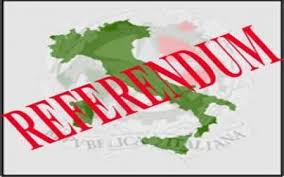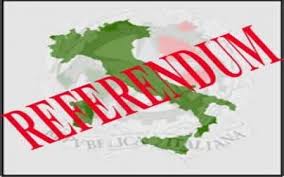
A senior economist is of the opinion that another banking crisis in Europe could be sparked off by this Sunday's referendum in Italy.
"In my view the biggest risk is actually for the banking sector, even more so than political risk, and there will be some political instability," Megan Greene, chief economist at Manulife Asset Management, told the media.
While most voters see the upcoming referendum as a vote on the prime minister and the current government, the fact is that Italian voters have been asked to approve reforms to the country's constitution. If the reforms are rejected, he would resign, Prime Minister Matteo Renzi has previously stated. Expectations are that voters will bring political and financial instability back to the third largest euro zone economy and they will say "no" to the reforms.
"If you have a crisis in the Italian banking sector kicking off again, not only that could spread across Europe but also the solution that Renzi may come up with to just break the rules and bailout the banks, in which case he would be massively undermining (the) banking union, which is actually the only area where they made progress in Europe since the beginning of the crisis," Greene added.
If investors decided to stop contributing to a solution that addresses some of Italy's weakest banks, a banking crisis in Italy is seen as being possible. The Italian banking sector has been burdened by a high level of non-performing loans and concerns over the sector’s stability would be calmed if the weaker banks were bailed out, as agreed earlier this year between asset managers, insurers and banks, by the setting up of a 5 billion euro fund ($5.30 billion).
Up to eight Italian banks could be in trouble if voters choose "no" in the referendum, according to a report by the Financial Times on Monday, citing officials and senior bankers.
Analysts argue that he would be forced to form a new government, but an early election would be unlikely if polls prove to be correct and Renzi loses the referendum.
"Investors may not be interested in participating anymore if you have all this political instability in Italy off the back of this referendum," Greene told the media.
"That government won't be able to do anything but electoral reform, so Italy won't get the structural reforms that it needs," Greene added.
Meanwhile, the impact the referendum result might have on banks and on Europe has been downplayed by Italian officials. market concerns of a potential default are not justified, Paolo Gentiloni, the Italian foreign affairs minister, said in Monday.
Italy had improved since 2011 and such fears were reasonable in 2011, Gentiloni said. There are no risks of contagion to Europe, he added.
"In any case we will have a weaker and more unstable country, but not a threat for the European economy," he said.
(Source:www.cnbc.com)
"In my view the biggest risk is actually for the banking sector, even more so than political risk, and there will be some political instability," Megan Greene, chief economist at Manulife Asset Management, told the media.
While most voters see the upcoming referendum as a vote on the prime minister and the current government, the fact is that Italian voters have been asked to approve reforms to the country's constitution. If the reforms are rejected, he would resign, Prime Minister Matteo Renzi has previously stated. Expectations are that voters will bring political and financial instability back to the third largest euro zone economy and they will say "no" to the reforms.
"If you have a crisis in the Italian banking sector kicking off again, not only that could spread across Europe but also the solution that Renzi may come up with to just break the rules and bailout the banks, in which case he would be massively undermining (the) banking union, which is actually the only area where they made progress in Europe since the beginning of the crisis," Greene added.
If investors decided to stop contributing to a solution that addresses some of Italy's weakest banks, a banking crisis in Italy is seen as being possible. The Italian banking sector has been burdened by a high level of non-performing loans and concerns over the sector’s stability would be calmed if the weaker banks were bailed out, as agreed earlier this year between asset managers, insurers and banks, by the setting up of a 5 billion euro fund ($5.30 billion).
Up to eight Italian banks could be in trouble if voters choose "no" in the referendum, according to a report by the Financial Times on Monday, citing officials and senior bankers.
Analysts argue that he would be forced to form a new government, but an early election would be unlikely if polls prove to be correct and Renzi loses the referendum.
"Investors may not be interested in participating anymore if you have all this political instability in Italy off the back of this referendum," Greene told the media.
"That government won't be able to do anything but electoral reform, so Italy won't get the structural reforms that it needs," Greene added.
Meanwhile, the impact the referendum result might have on banks and on Europe has been downplayed by Italian officials. market concerns of a potential default are not justified, Paolo Gentiloni, the Italian foreign affairs minister, said in Monday.
Italy had improved since 2011 and such fears were reasonable in 2011, Gentiloni said. There are no risks of contagion to Europe, he added.
"In any case we will have a weaker and more unstable country, but not a threat for the European economy," he said.
(Source:www.cnbc.com)





